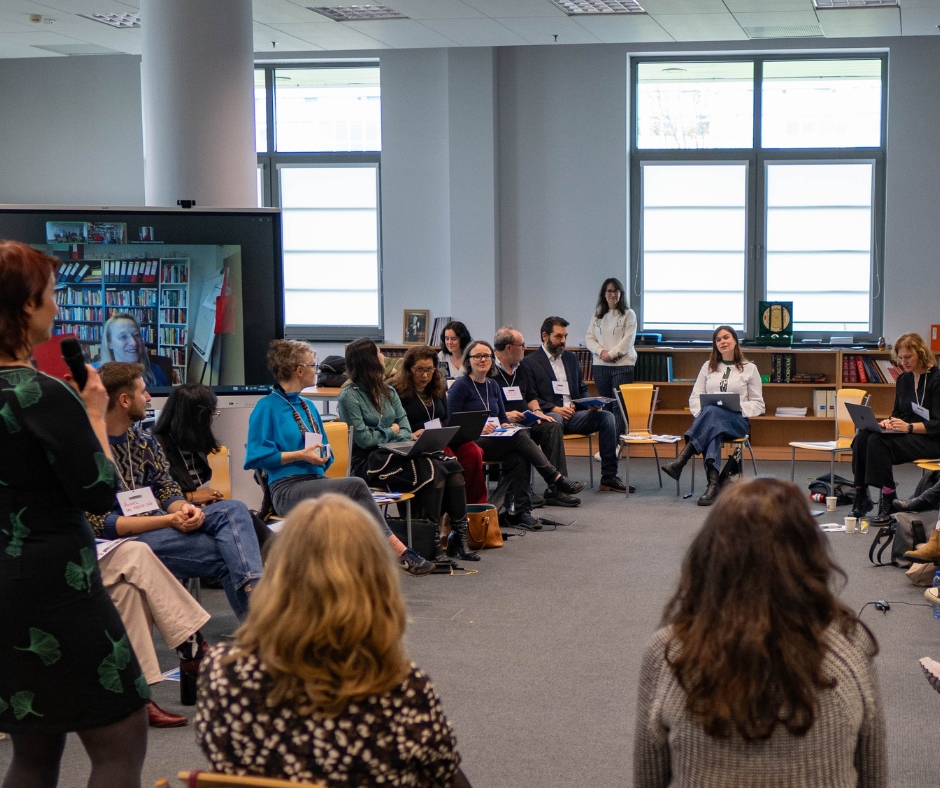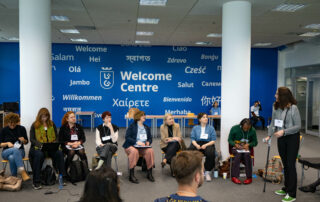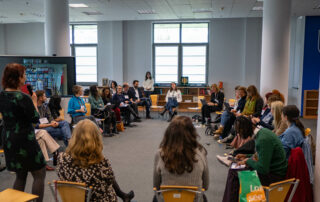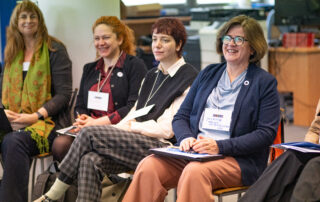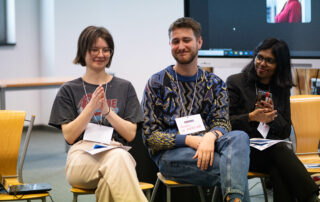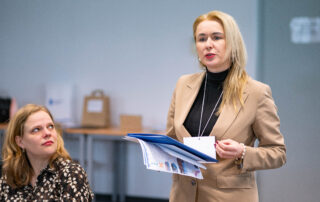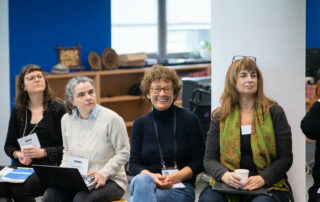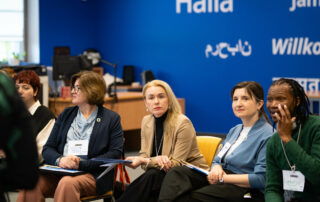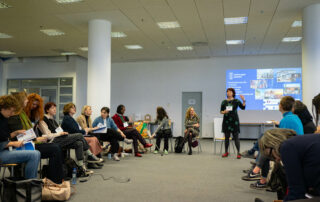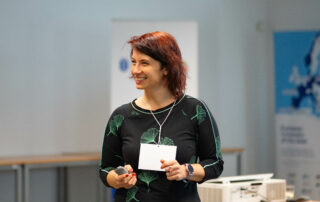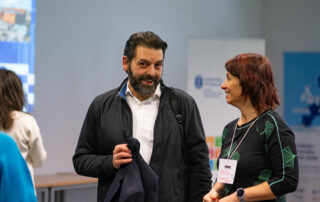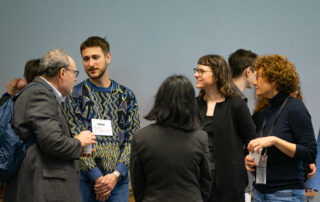Academics from Belgium, the Netherlands, Spain, Poland, South Africa and the United Kingdom met at the University of Gdansk to participate in debates and workshops on initiatives to promote change in institutions – in different cultural contexts – that will help to redress gender inequalities. This is part of activities related to the Horizon Europe-funded project RE-WIRING – Realising Girls’ and Women’s Inclusion, Representation and Empowerment.
Photo: Marcel Jakubowski
-“What does solidarity mean today? It is cooperation between society, businesses, local government and universities. It is also responsibility for our future – the environment, climate, education, security and challenges such as the Sustainable Development Goals, with gender equality at the forefront,” said the Vice-Rector for Cooperation and Development, Sylwia Mrozowska, PhD, DSc, Professor UG, who opened the event. “Therefore, for us the RE-WIRING project is not only important from an academic perspective. We are working together to reprogramme institutions; we are creating sustainable change that prevents and reverses existing gender inequalities.“
The Re-WIRING project started in March 2023; its participants look at the issue of gender inequality from multiple perspectives. One of the aspects analysed is how the education system perpetuates stereotypical beliefs about the role of women and men. RE-WIRING also examines pay inequalities, the representation of both sexes in the media and arts or systemic discrimination present in institutions.
During the three-day meeting at the University of Gdansk, project participants attended sessions and workshops on topics such as inclusive language and teamwork.
Researchers involved in RE-WIRING also met with representatives of businesses: President of the Sports Association Their Own League Elżbieta Jachlewska, Vice President of the Women’s Congress Association Ewa Rumińska-Zimny and President of the Pomeranian Women’s Team Jolanta Szydłowska, to talk about increasing stakeholder involvement in scientific activities and their application in daily practice in organisational management.
“In order to prevent inequalities and to promote the inclusion, representation and full empowerment of girls and women in all spheres of life, a better understanding of the root causes of existing power hierarchies and gender differences in the political, social, economic and cultural spheres is necessary,” says Natasza Kosakowska-Berezecka, PhD, DSc, Professor UG, project leader representing UG in the RE-WIRING consortium. “The overall goal of the RE-WIRING project is to contribute to practical, sustainable and structural institutional change in those spheres where inequalities are present, by understanding the cumulative consequences of gender stereotypes and the many forms of discrimination and disadvantageous conditions for women and girls to thrive.“
The project involves extensive research in six countries – Belgium, the Netherlands, Spain, South Africa, Poland and the UK – and collaboration with various stakeholders. This international and interdisciplinary project team will conduct surveys, qualitative research and interventions, and analyse media discourse and equality policies. RE-WIRING seeks innovative answers to questions about how the interconnections between the way power is shaped and exercised in institutions and the existing barriers girls and women face shape gender (in)equality and sustain women’s exclusion in different spheres of life.
The RE-WIRING project at the University of Gdansk involves:
- dr hab. Natasza Kosakowska-Berezecka, prof. UG (project coordinator on the UG)
- Ángel del Fresno–Díaz, Department of Intercultural and Genre Psychology
- Julia Stekla, Department of Intercultural and Genre Psychology
- UG Vice-Rector for Cooperation and Development dr hab. Sylwia Mrozowska, prof. UG
- dr Magdalena Żadkowska, Institute of Sociology
- Vice-Dean for Student Affairs WNS UG dr Barbara Kijewska
- Equal Treatment and Anti-Bullying Ombudsman, dr hab. Joanna Kruczalak-Jankowska, prof. UG
- dr Anna Podolska, Faculty of Law
- mgr inż. Jolanta Mrozek-Kwiatkowska from the Centre for Sustainable Development
Photo and text by Marcel Jakubowski/ UG Press Team


